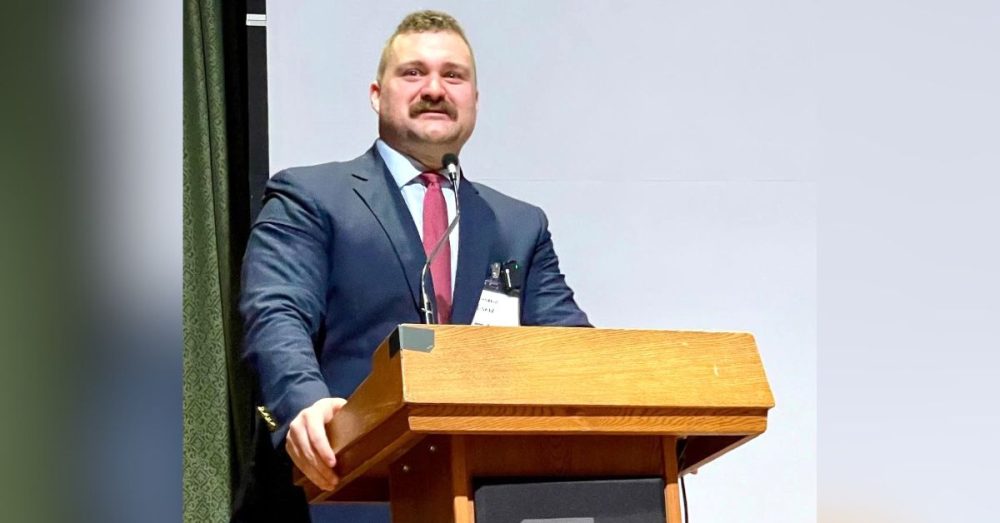True Texas Project celebrated its 15th birthday over the weekend with a sold-out conference and a number of notable speakers, including Andrew Isker, C. Jay Engel, Kyle Rittenhouse, Wade Miller, and Stephen Wolfe.
Julie McCarty, CEO of True Texas Project (TTP), spoke with The Dallas Express before the kick-off festivities. She stated that her hope was for the conference attendees “to be challenged about things they never thought about before — whether they agree or disagree, I just want them to think about it.”
Attendees were challenged upon arrival when they were greeted outside the gate of the Fort Worth Botanic Gardens by those who vehemently disagreed. Approximately 100 protesters voiced their opposition to TTP, alleging that the grassroots organization was a “hate group.”
Yet, as previously reported by The Dallas Express, it was the protesters who were seen carrying weapons and directing continuous hate speech at the guests as they entered the venue. After being called a vulgar name myself, I decided to try to understand why the protesters were choosing to be so confrontational to show their disapproval of TTP, which they labeled as a “hate group.” You can see the protesters’ posters and read the interviews with the demonstrators here.
I attended the conference to try to understand the controversy, listening to multiple talks and interviewing guests, speakers, staff, protesters, and police officers.
People often form conclusions without thoroughly educating themselves or considering the possibility of being wrong or ill-informed. They may overlook the potential for truth beyond what they have told themselves or what the biases in media and popular opinions have decreed.
Some think being truthful has become less of a bedrock virtue and more of a personal opinion. Andrew Isker’s talk on global gaslighting and the hierarchy of affections brought this topic to the forefront.
Isker leads the 4th Street Evangelical Church in Waseca, Minnesota, and is the author of The Boniface Option: A Strategy For Christian Counteroffensive in a Post-Christian Nation and co-author of Christian Nationalism: A Biblical Guide for Taking Dominion and Discipling Nations.
“Our culture is shaped by globalism, egalitarianism, and universalism” more than “rightly ordered affections,” Isker said.
He explained that people were falling away from rightly ordered affections and that we are seeing more people today who “do not love their mom and dad, their neighbors, their nation. In fact, they love the opposite of these things,” noting that a growing number of people today hate their parents, their neighbors, and their nation.
When anything goes, then eventually everything goes.
“Our society wants us to be rootless. … To be an individual from anywhere, meaning nowhere. To have no connection to your past, your ancestors, your heritage, your future, your lineage, to heirs you would pass down material and spiritual inheritance,” said Isker.
“This is a destruction of distinct ways of life … to make [us] totally interchangeable. It is the inversion and destruction of ordered love,” he added.
I asked Isker what he believes is driving this change towards “anything goes; therefore, everything goes.” Isker explained that it was partially due to a “lack of self-realization” and people falling from the “moral order … of what is true, good, right, and beautiful.”
“To judge anything these days is to be called judgemental,” he said. “Yet, there is right and wrong, and to say everything is grey is insanity.”
I thought of McCarty’s comments about wanting attendees to be challenged and open to thinking differently. As I left Isker, I realized that he challenged me and the audience to inspect the lens through which we filter the view of others and the world.
Isker said that the impulse of our current age is to turn the order of things upside down, adding that it does not take long to look around and realize that today, “people have the same degree of hate that they should have love.”
Stay tuned for more to come about what other speakers shared.


